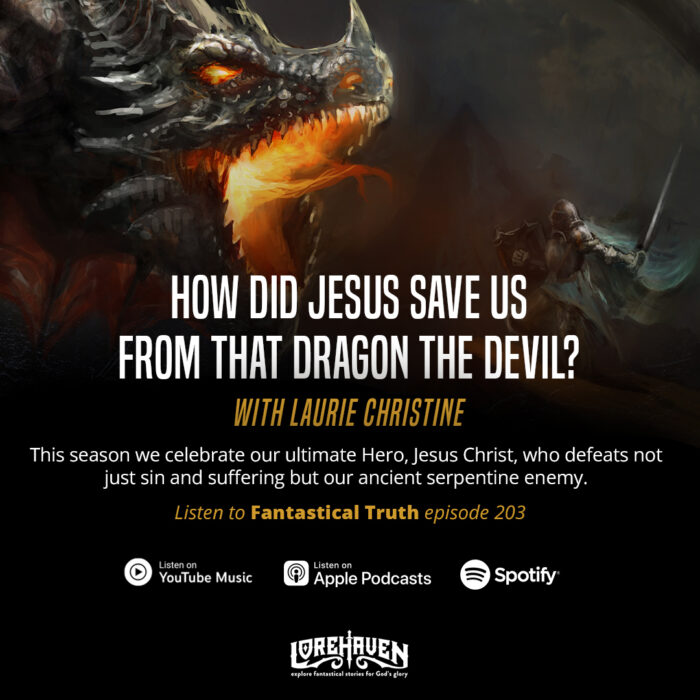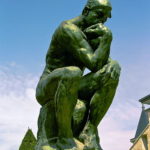Revisiting Christian Horror
Rather than trying to re-say what I just read, I want to encourage you to click over to Mike Duran’s blog and read his post on Christian Horror.
Ideally, you’d come back to Spec Faith and discuss the subject. This subject has come up here before, but I have to be honest, I’ve done some rethinking of my views.
However, one thing I do believe. Some writers take fantasy to the dark side and eventually that trend kills the genre.
Horror, even Christian horror, is a smaller segment of a larger subset. While I recognize the talent of the authors Mike mentions, and I agree in principle with his final point, I grieve for the genre because I believe the advance of horror will bring the death throes of all fantasy.
Why is that? Why, if Christian horror in particular, has redemptive qualities, would readers steer away from it? I have my theories, but I’d like to hear your thoughts.







































COMMENT: AUTHOR: Donna Swanson DATE: 7/8/2008 12:57:25 AM First of all, Becky, I could not read the suggested blog due to the 10point red font on the blue background. However, I do not believe horror as I’ve seen it, has a place in Christian Literature. There is a big difference between telling the story of David and Goliath or the slaughter of the Cananites and going into the graphic, bloody details for the express purpose of eliciting horror from the reader. I did not go to see The Passion of Christ, even though I admired Mel Gibson’s courage in doing it. The Crucifixion and resurrection of Christ go so much deeper than the gory details. Many martyrs have died deaths as cruel, but they were not the Son of God.
Having said that, I repeat my belief that horror is the death knell of Christian Speculative Fiction. When Scifi became more fantasy and slease than scifi I quit reading it. It is so easy to ‘gloss over’ the plot with scene after scene of violence and gratuitous gore.
As writers, are we not in the business of telling stories? And as Christian writers, are we not telling stories with redeeming virtue?
There may be a place, infrequently, where violence is shown to advance the plot, but it cannot BE the plot.
If a story cannot live without the use of horror, then it wasn’t much of a story to begin with.
When I wrote Rachel’s Daughters, the plot revolves around the death of Rachel’s son in Herod’s slaughter of the innocents and that scene had to be played out, but even though it was the pivotal point in the story, it could not fill 200 pages.
Well, that’s my take on horror. Just one voice, but perhaps there will be other voices as well.
Donna
—– COMMENT
: AUTHOR: Xdpaul DATE: 7/9/2008 4:30:48 PM I must be reading you wrong, for these sound, to my mind, to be very strange definitions of horror literature, and they attack a brand of storytelling that doesn’t resemble what I know to be horror fiction.
If a story can’t live without horror, it wasn’t much of a story to begin with? Why is that? I could just as easily say that if a story can’t live without romance, or mystery, or fantasy, it isn’t much of a story, either.
Don’t get me wrong, I understand that some people absolutely recoil from certain genres, but I don’t think that justifies a blanket statement that it has no place.
Dante’s Inferno, without the horror, is no story at all. With the horror, it is a vivid morality play. All good horror is exactly that: a vivid morality tale.
The vividness may be too gaudy for some readers, and I understand that.
But I simply can’t see how the “advance” of a genre that has been around since the story of the Witch of Endor (and before) is somehow going to be the death knell for all fantasy. If anything, it is a compliment.
—– COMMENT
: AUTHOR: Rebecca LuElla Miller DATE: 7/9/2008 7:00:09 PM First of all, Donna, xdpaul, thanks for taking the time to enter into this discussion. It is great to get your feedback.
In my opinion, you both make great points. I agree that horror will kill off fantasy because the majority of readers don’t like to read the dark, oppressive stories associated with the genre for very long. I think that’s exactly what happened to fantasy years ago. Along came Star Wars, with hope and light and heros we could root for without out quivocation, and Space Opera surplanted fantasy for decades.
But I’m concerned with more than the fantasy genre, as I’m sure you both know. For some time I accepted the definition of horror as that which existed for the purpose of igniting fright. But does that actually describe Mary Shelley’s Frankinstein, often thought to be the first novel in the genre? Or how about E. A. Poe’s short stories–are they solely to scare?
I suggest they accomplish more.
In a dialogue in the comments section over at Sci Fi Catholic during the last blog tour, DG said there are stories that exist for no other reason than to celebrate violence and initiate fear. Those are the book equivalent of slasher movies. But does the lowest form of the genre (the equivalent of erotica to romance) define all books so classified?
That’s what really got me to thinking about this subject. That and the fact that I found Anne Rice’s vampire stories in the Literature section of the book store. Not in Horror.
Will I become a fan of Christian horror? I don’t even see myself becoming a reader of Christian horror. But it doesn’t mean some authors might not be able to write stories that will touch others in ways my fantasies never will.
Becky
—– COMMENT
: AUTHOR: XDpaul DATE: 7/9/2008 9:04:29 PM But isn’t that a little like saying that Fantasy fiction will be the death of literature because their only purpose is to disconnect readers from reality?
You mention Poe and Shelley. These writers define the genre.
Psycho, by Robert Bloch is far more similar to The Cask of Amontillado or Hop-Frog than you give horror credit for.
John the Baptist scared people. The Book of Revelation scares people. The scaring is intentional. Sometimes that’s the final swipe necessary to inspire repentance.
I’ll argue up and down that the core of horror literature, the best of it, is a morality tale arguing for repentance in a visceral, tangible way.
Now, it is possible for horror fiction to tell the reader to repent of good things, such as stewardship or duty or (occasionally) Christianity, but that simply demonstrates the natural bias of the author, a bias which can turn up anywhere. (Please tell me you’ve never encountered a romance whose message encouraged license, or a thriller whose message encouraged pride.)
Anyone whose ever read Perelandra and the visceral, horrifying confrontation between Professor Ransom and the Satan-possessed Un-Man corpse of Weston understands that sometimes, horror is the genre to get the job done.
I see know reason for fantasists (who have a bone or two to pick with Christian market bias in their own right) to ignore, disregard, or fear the existing rich Christian heritage of the so-called Horror genre.
Bad (i.e. badly written, falsely moral/immoral) Horror should not be the benchmark by which an entire genre should be judged.
—– COMMENT
: AUTHOR: Rebecca LuElla Miller DATE: 7/11/2008 6:47:26 PM Bad (i.e. badly written, falsely moral/immoral) Horror should not be the benchmark by which an entire genre should be judged. And that was essentially the argument DG made in the comments I mentioned.
Unfortunately, horror seems to attract a lot of people who write for the wrong reasons. Not that this is a reason Christians shouldn’t write it. NO. I’m not saying that. I am saying that all that darkness will drive the bulk of readers away from speculative fiction.
And your fantasy-to-literature analogy doesn’t work for me, xdpaul, because I don’t accept your statement that fantasy exists to disconnect the reader from reality. I don’t know a fantasy writer who believes that.
Good discussion.
Becky
—– COMMENT
: AUTHOR: David Ellis DATE: 7/13/2008 5:53:42 PM Only tangentially relevent to this discussion, but it does bring this question to mind.
Does anyone know any good contemporary christian fiction taking place in hell? And, if so, what did you think of it?
I’ve read a few interesting fantasy novels over the years set in hell (most recently Larry Niven’s INFERNO).
But, strangely enough, I dont think any of them were written by christians or from a christian perspective. The only modern christian book I’ve encountered on the subject is CS Lewis’s THE GREAT DIVORCE. Are there any more recent?